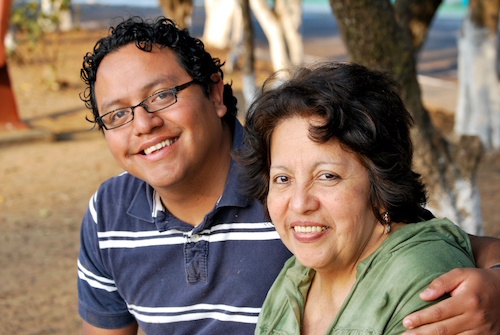Think you don’t have to worry about diabetes? According to the Centers for Disease Control and Prevention, almost 10 percent of people in the U.S. have the condition, and at least 1 in 3 will develop Type 2 diabetes in their lifetime. Recognizing diabetes symptoms will help you ensure that you or a loved one avoids serious complications should you develop it.
Common Diabetes Symptoms
Type 1 and Type 2 diabetes have many symptoms in common, including:
Blurred Vision
There are many reasons individuals experience blurred vision; however, for some, it may be symptomatic of diabetes. Blurred vision occurs because fluids are withdrawn from the lenses of your eyes when your blood sugar level is high. The lens, a transparent structure, is located behind your iris and helps focus images on your retina, the light-sensing layer that lines the back of your eye. Lower fluid levels make it more difficult for your lens to focus, which results in blurred vision.
Diabetic retinopathy is a blanket term for all disorders of the retina that may occur as a result of poorly controlled blood sugar. Over-time, retinopathy may cause advanced complications, even resulting in complete blindness if unmanaged. It’s recommended that diabetic patients see an eye care professional at least once a year for early detection of potential problems.
Thirst and Frequent Urination
If you have diabetes, it may seem as if no matter how much you drink, you’re still thirsty. Diabetes occurs when your body doesn’t produce any insulin, doesn’t make enough insulin or doesn’t use the insulin it produces efficiently. If this happens, blood glucose isn’t converted into energy. Instead, it begins to build up in your blood.
When your kidneys try to filter the excess glucose in your blood, they’re often unable to handle the extra load. Instead of filtering the sugar, the kidneys dump it and some natural body fluids into your urine, triggering frequent urination. Frequent urination causes dehydration and makes you feel extra thirsty.
Fatigue
Everyone feels tired and listless from time to time, but you may constantly feel fatigued if you have diabetes. Fatigue can occur due to dehydration and your body’s inability to convert glucose to energy.
Infections and Sores that Won’t Heal
Poor circulation and high glucose levels slow healing and make you more prone to developing infections. If you have diabetes, it’s particularly important to examine your feet for injuries every night.
Because diabetes can also damage the nerves, some people who have the illness may develop diabetic neuropathy, or loss of sensation. As a result, individuals with diabetic neuropathy may not feel the progression of blisters or wound infections until they become very severe. In advanced cases, the progression of an untreated wound can even lead to amputation.
Gum Disease
It’s not uncommon for dentists to first bring up the possibility of diabetes. High blood sugar increases the risk of infection in every part of your body, including your gums. If you have uncontrolled diabetes, you may develop the symptoms of gum disease, which include bleeding when you floss or brush, and red, swollen gums. If the disease isn’t treated promptly, bacteria-laden pockets can form around teeth, causing an infection that may trigger tooth or bone loss.
Prompt Treatment Is Essential
If you notice any of these symptoms, it’s important to report them to your doctor as soon as possible. If you are diagnosed with pre-diabetes or diabetes, you may be prescribed oral medications or insulin to assist with blood sugar control. Your doctor will also recommend lifestyle changes as part of your treatment. Taking charge of habits like diet and exercise is an equally great way to control blood sugar levels in order to delay or even prevent the progression of diabetes and its related symptoms.
If you notice any of these symptoms, it’s important to visit your doctor as soon as possible. Depending on the type of diabetes, your doctor may recommend one of a variety of treatments designed to regulate your blood sugar level, including insulin and oral medications.
Sources:
American Diabetes Association: Diabetes Symptoms
Mayo Clinic: Diabetes Symptoms: When Diabetes Symptoms Are a Concern
American Diabetes Association: Statistics About Diabetes
Centers for Disease Control and Prevention: 2014 National Diabetes Statistics Report
National Institute of Diabetes and Digestive and Kidney Diseases: Types of Diabetes

